A Side Of Couture With Your Coffee?
- Luxury Fashion Brands Foray Into F&B
The boom in luxury brands opening cafes or full-service restaurant showcases a both a diversification of their brands and an exploration of accessibility.
3 July 2025
Share this exclusive content from Saladplate
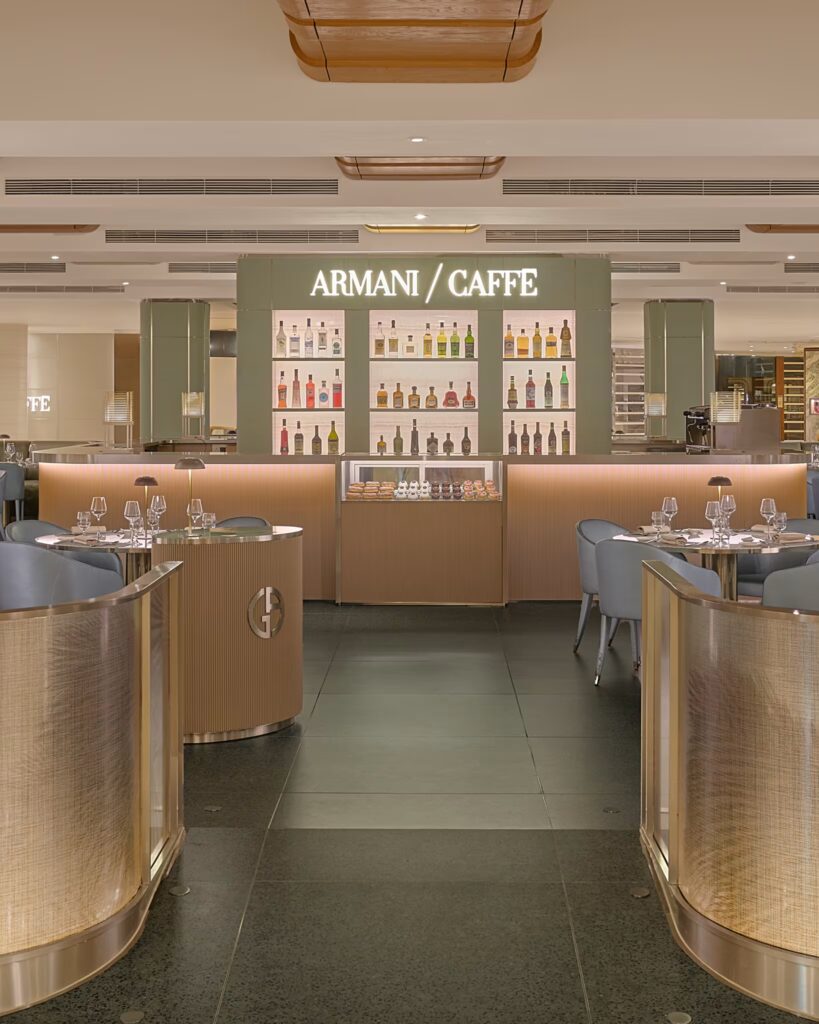
Photo Credit: Armani Restaurants
In 1998, Giorgio Armani opened the Emporio Armani Caffé in Paris, often considered the first fashion brand to break into the F&B industry with this pioneering “fashion cafe” concept. Currently, the brand has over 20 F&B establishments around the world and has developed a reputation for quality and an elevated experience.
At the time, it was considered revolutionary, but since then, many others have followed suite including Tiffany & Co. with their Blue Box Cafe with a menu by celebrity chef Daniel Boulud in New York and London, Prada with its two cafes in London and the newly-opened concept in Singapore, and Louis Vuitton which has more than 20 cafes worldwide plus a recently-opened one at London’s Heathrow Airport. While some brands have favoured pop-ups, such as Dior who host the launch of their summer capsule collection at different hotels, others have transformed their F&B offerings into destinations unto themselves. A good example of this is Ralph Lauren’s Ralph’s Coffee, usually partnered (but not always) with one of their fashion stores, as well as Coach Coffee which is about to open its first outpost in Singapore at Sentosa’s new shopping destination, Weave.
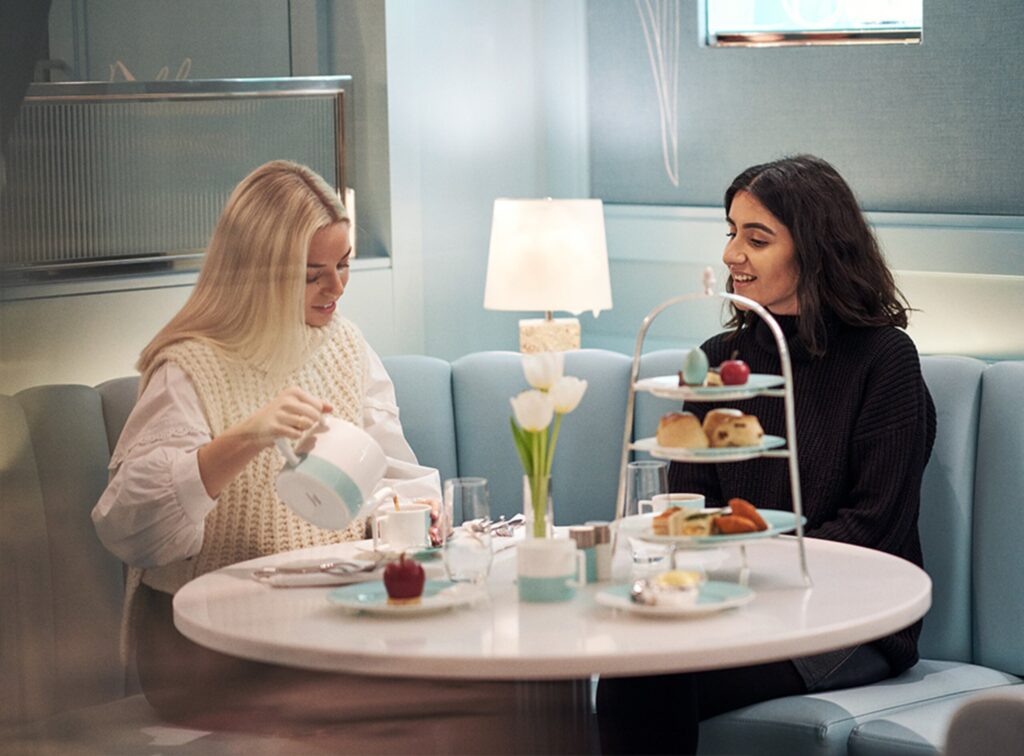
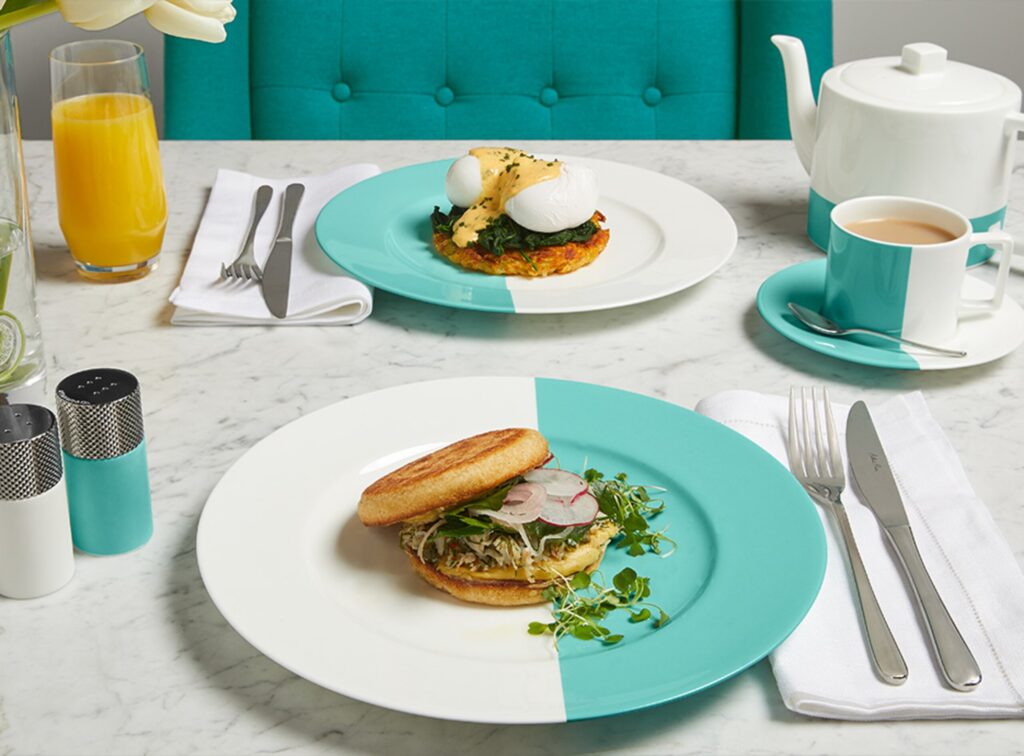
In London, Tiffany’s Blue Box Café is within the iconic Harrods | Photo credit: Harrods
Brand accessibility
According to Bain & Company, the market for personal luxury goods experienced its first real slowdown in 15 years, dipping by 2% to €363 billion in 2024. “Quarterly growth was negative throughout the year, with the industry expected to have faced continued headwinds in the fourth quarter of 2024.” It makes sense, therefore, that brands would turn to other avenues to bring in consumers. While branded beauty products have traditionally been one way in which the industry does this, food and hospitality is a much more communal and experiential market. Furthermore, Bain & Company noted that the food and fine dining industry grew 8%, making it clearly a market to tap into.
It also echoes general sentiment and trends in the travel market with regards to how people want to spend their money now. Marriott International’s recent Intentional Traveller Report 2025 states that affluent travellers are investing more in their journeys with higher expectations of the experiences. 29% of travellers in the report prioritised top-ranked dining experiences, and so it would make sense that luxury brands (often in partnership with celebrity chefs) could bring this level of expectation to potential clients.
Social currency
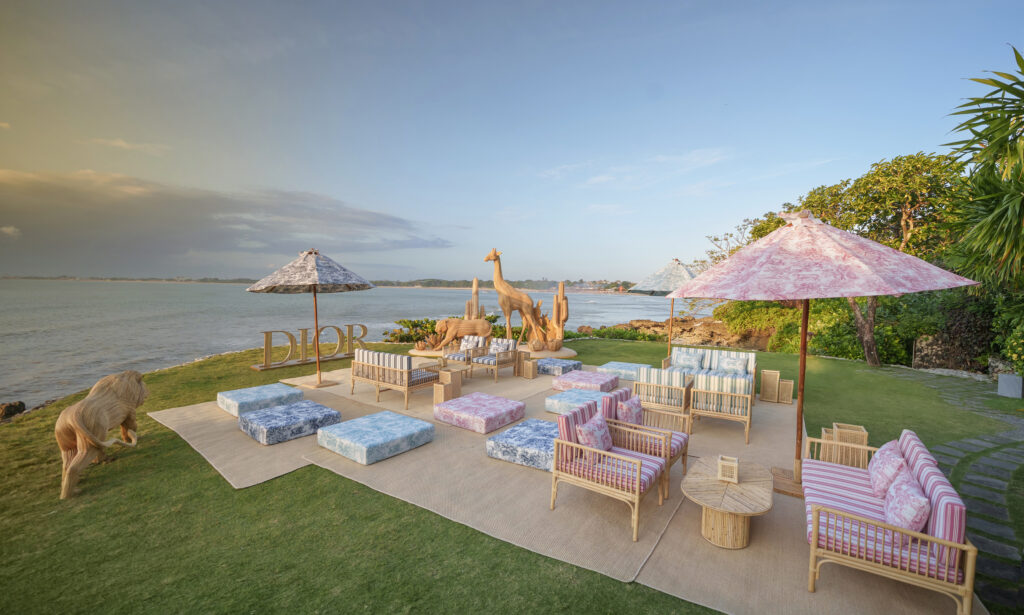
Dioriviera at The Four Seasons Bali | Photo Credit: Four Seasons Bali
This is also in line with the rise of Gen Z, who as travellers are also known to prioritise experiences and social clout. Currently, Dior is holding its Dioriviera event at the Four Seasons Bali in Jimbaran and Burberry has taken over The Standard Ibiza. Both takeovers feature the brands’ famous prints and logos on everything from umbrellas to cushions. It gives hotel guests as well as fans of the brands an opportunity to “live the experience” without having to buy a thousand-dollar (or more) bag.
As the first generation of digital natives, Gen Z is also reliant on social media value and for brands, pop-ups, hotel takeovers and cafes featuring their iconic prints can result in massive social media exposure and benefits. An article in Forbes in 2024, notes “[these] high investments to become memorable, beautiful and enjoyable, they are also being designed with the intent to be captured on Instagram and TikTok. This boosts brand reach and awareness, while growing equity and helping to engage with a wider audience with the hopes to drive younger demographics to these venues and to the brands’ stores.”
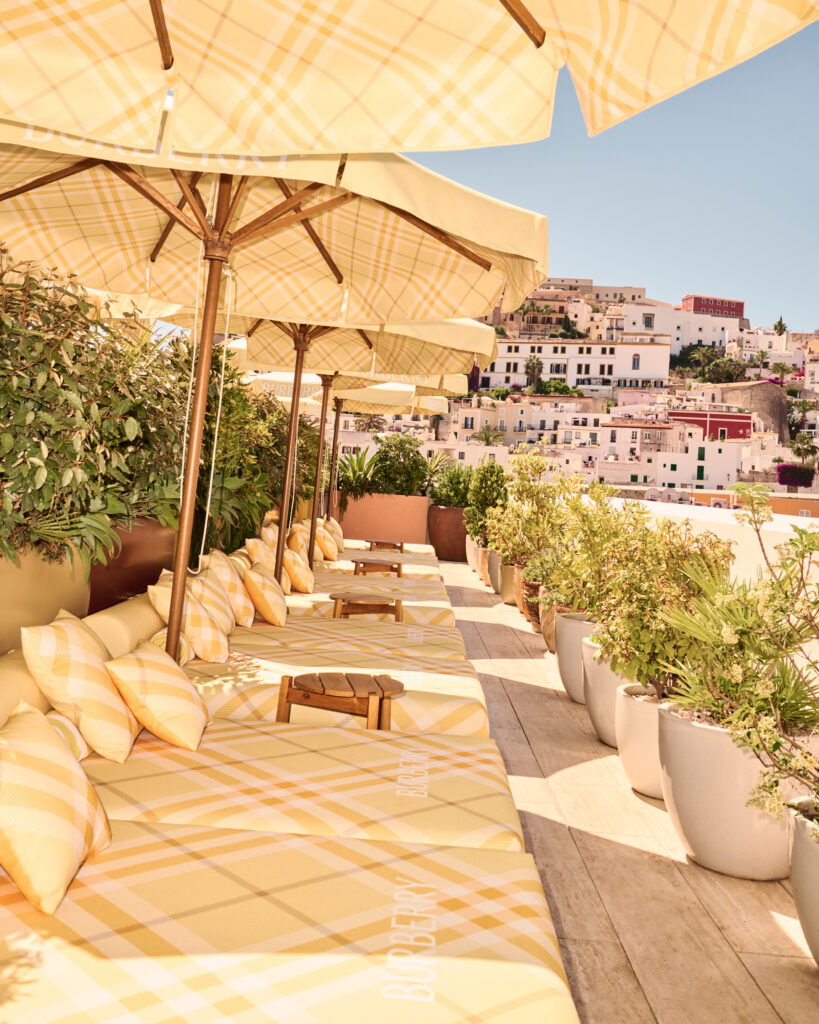
A Burberry takeover at The Standard, Ibiza | Photo Credit: The Standard Ibiza
Future Commerce, a company that helps retailers and eCommerce operators understand the future of commerce and culture, describes it as “in an era where experiences eclipse possessions, branded cafés have emerged as the new frontier of luxury consumption. These spaces offer more than just coffee; they serve up a potent brew of aspiration, identity, and cultural cachet”. Could this evolve in the future? As an example, in 2023, Coach opened the Coach Play Singapore Shophouse, a concept designed to blend retail and F&B (it recently opened The Coach Bar) as well as create immersive and artistic experiences for visitors.
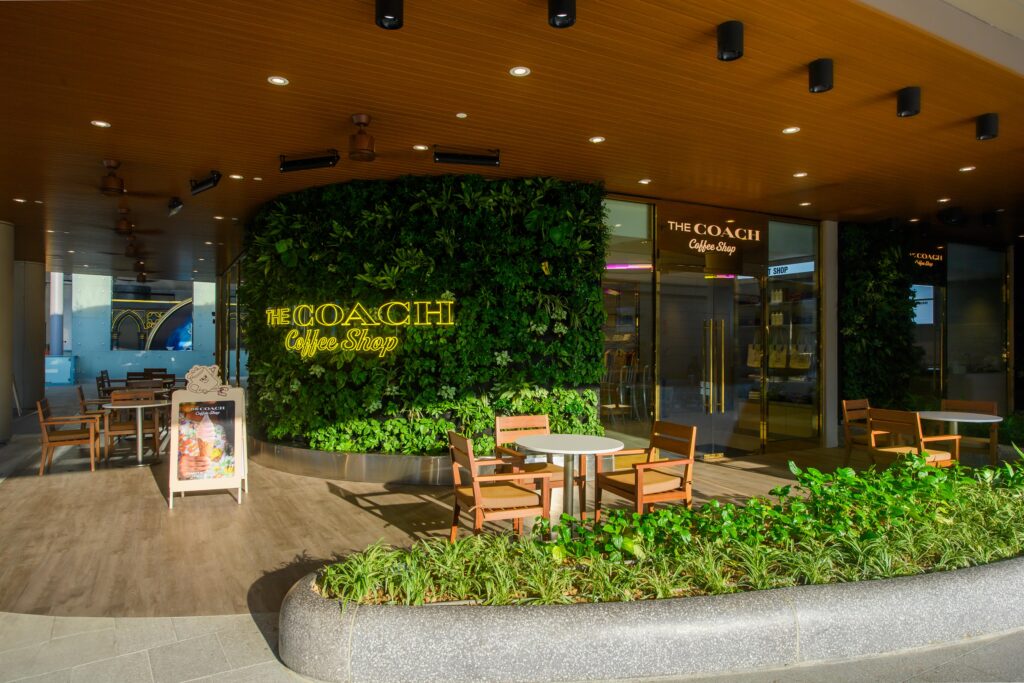
Coach Play Singapore Shophouse | Photo credit: Coach
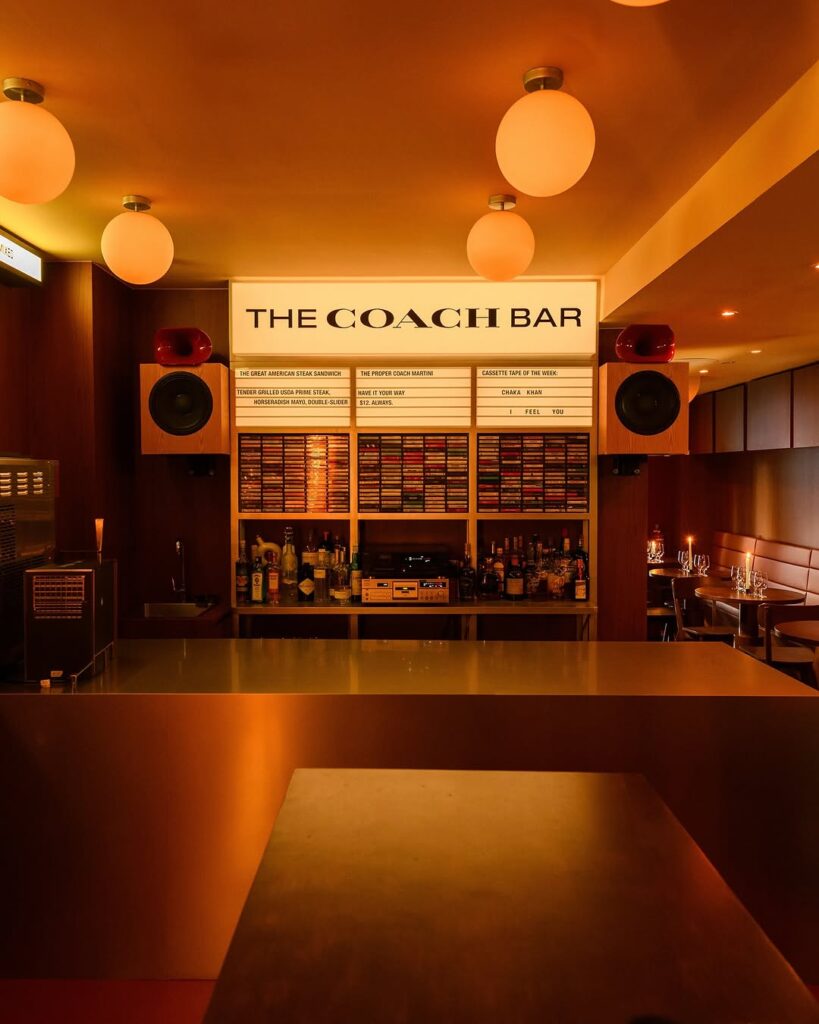
The Coach Bar in Singapore | Photo Credit: Coach
The value of a luxury brand doesn’t just lie in its high-quality design or manufacture; it’s largely about desire and status. By making themselves more accessible to a larger audience, these “branded cafes” are in some ways democratizing their offerings, while retaining a level of prestige. After all, more people are likely to splurge on a meal than a monogram.
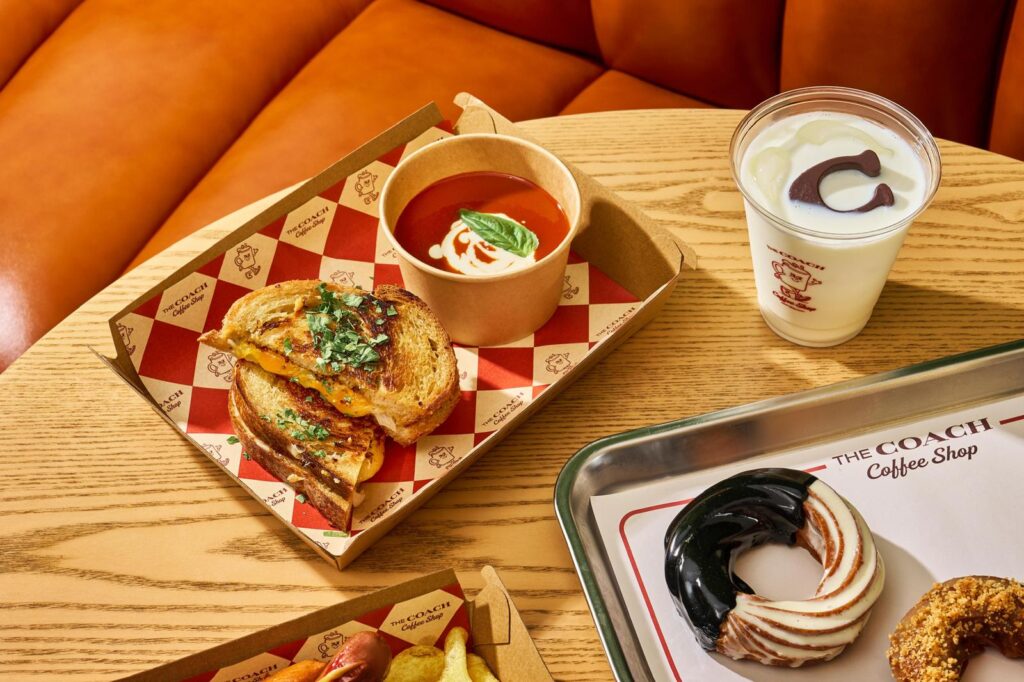
Photo credit: Coach
Author: Karen Fong
Karen Fong is a Singapore-based writer and editor who has previously spent time in Hong Kong, Shanghai and Canada. She writes parenting, lifestyle and travel content and has worked with publications including The Singapore Women’s Weekly, DestinAsian, Travel+Leisure Southeast Asia and Prestige Hong Kong.



